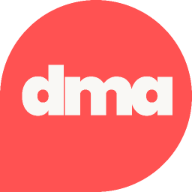When it comes to engaging developer and technical audiences at events, the strategy goes beyond just organizing an event—it's about creating an experience that resonates deeply with this unique community.
I’m Danni Scott-Duke, with over 25 years in marketing, primarily focused on the software and technology sectors. Throughout my career, I've honed my skills in connecting with developers, understanding their preferences, and designing events that not only capture their interest but also foster lasting engagement.
In this article, I'll share insights on crafting developer-centric events and key strategies to ensure they are both impactful and effective, helping you achieve a meaningful connection and solid return on your investment.
Understanding developer audiences and event types
When marketing to developers, it's crucial to recognize that their needs and expectations are distinct from those of typical decision-makers or general consumers.
Developers look for authenticity and substance. They value hands-on experiences with products and opportunities to enhance their skills and knowledge through engagement. This understanding should shape how we plan and execute developer events.
Types of developer events
To better tailor your approach to different event formats, it’s important to understand the three primary types of events you might encounter in developer marketing:
Hosted events
These are the events over which you have full control. You decide everything from the venue and schedule to the attendee list. This type of event allows for a highly customized experience that can be closely aligned with your marketing goals.
Sponsored events
Think of these as larger trade shows or conferences where you pay for participation but don't control the event logistics like timing and location. Sponsored events can vary greatly in size, from having just a few sponsors to several thousand. The challenge here is to stand out and make a meaningful impact without direct control over many elements of the event.
Community and partner events
These are similar to sponsored events but are typically smaller and involve a collaborative approach with partners. Decisions about the event's location, size, and attendees are often made jointly with the partner organization. This setup can feel more intimate and community-focused compared to larger conferences.
For all these events, remember that they can be either in-person or virtual. Each format offers different advantages and challenges, and choosing the right one depends on your specific goals and the preferences of your developer audience.
Hackathons
Hackathons are exemplary when considering events to engage developers deeply. They provide a platform for participants to interact directly with your products and offer real-time feedback on usability, bugs, and potential improvements.
What makes hackathons particularly valuable is the opportunity they present for observing your product in use "in the wild." Developers are known for their creativity, often using products in ways we hadn’t anticipated, providing insights that can drive innovation within your team.
Roadshows
Roadshows allow you to take your message directly to your audience in a more localized and intimate setting. Whether it’s across North America or within a specific state, roadshows offer a unique opportunity to engage one-on-one or in small groups.
This setting is especially beneficial for those who might not have the means or time to attend larger events like conferences in major cities. It’s a more accessible way to gather valuable feedback and strengthen relationships with users and prospects.
Meetups and user groups
Engaging with established meetups and user groups is another effective strategy. These groups often have regular meetings and seek sponsors for short presentations or to set up information tables.
While similar to conferences, these meetings are usually less costly and offer a regular opportunity to connect with your target audience. They also provide insights into broader industry trends, which can be invaluable for strategic planning.
Conferences and trade shows
Conferences and trade shows are critical for comprehensive engagement strategies. They offer a broad platform for networking, learning, and promoting your products.
The key to success in these large-scale events is choosing the right methods to interact with attendees and ensuring your presence aligns with your marketing objectives.
Partner events
Similar to meetups, partner events offer a collaborative environment but with the added benefit that you can influence the event's structure and attendee list. This type of event fosters a partnership atmosphere and can be tailored to ensure mutual benefits for all involved parties.
Product launches
I consider product launches a unique category due to their potential to create a buzz and directly engage your intended audience. These events are perfect for making your existing customers and key prospects feel valued by offering them an exclusive preview of new products. It’s an excellent opportunity to gather initial feedback and build excitement before a broader market release.
Selecting the right type of event can significantly impact your ability to engage with developers effectively. Each event type serves different strategic purposes and choosing wisely can help maximize your outreach and influence within the developer community.




